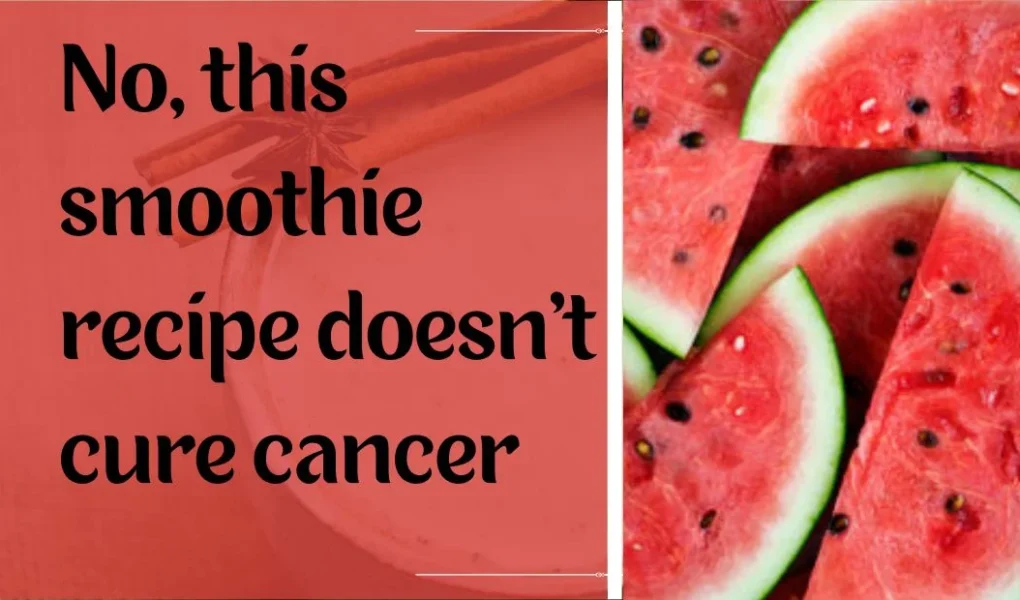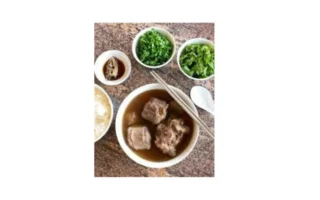No, This Smoothie Recipe Doesn’t Cure Cancer
In the digital age, misinformation can spread like wildfire, particularly concerning health claims. Recently, a viral video claimed that a particular smoothie recipe could cure terminal cancer, boasting ingredients such as limes, ginger, cloves, and aloe vera. While the components of this smoothie do offer health benefits, there is no scientific evidence supporting the claim that they can cure cancer.
Debunking the Myth: Smoothie as a Cancer Cure
Cancer is a complex disease with various types and mechanisms, making the notion of a single food or drink acting as a universal cure highly improbable. Experts from leading cancer centers emphasize the importance of evidence-based treatments and caution against replacing prescribed cancer therapies with unproven alternatives.
Expert Opinions
-
Dr. Channing Paller, Oncologist at Johns Hopkins:
- Dr. Paller notes that while the smoothie ingredients contain beneficial antioxidants and vitamins, no scientific data supports the claim that they can cure cancer. The complexity of cancer mechanisms means that benefits of certain ingredients may not apply universally across different cancer types.
-
Lindsey Wohlford, Registered Dietitian at MD Anderson Cancer Center:
- Wohlford highlights that while some studies have explored the ingredients’ efficacy in rodents and isolated cancer cells, no human trials have confirmed their effectiveness as a cancer cure. She warns against the dangers of abandoning physician-prescribed treatments in favor of unverified remedies.
-
Lisa Statner, Oncology Dietitian at USC Norris Comprehensive Cancer Center:
- Statner acknowledges potential health benefits of the smoothie’s ingredients, such as antioxidants and anti-inflammatory properties. However, she stresses that no single food or drink can be labeled as a cancer cure, emphasizing the need for a varied and balanced diet.
The Role of Plant-Based Diets in Cancer Care
While there is no evidence that a smoothie can cure cancer, a plant-based diet can support overall health and help manage treatment side effects. Consuming fruits, vegetables, and other plant foods provides essential nutrients, antioxidants, and anti-inflammatory compounds that can bolster the body’s defenses during cancer treatment.
Creating Nutritious Smoothies for Cancer Patients
Smoothies can be an excellent way for cancer patients to get the nutrients they need, especially when side effects from treatment make eating difficult. Here’s how to make a smoothie that supports health without false promises:
Start with Fruit
Fruits add natural sweetness, fiber, and disease-fighting antioxidants. Here are some options:
- Bananas: High in potassium for nerve and muscle function.
- Pears: Packed with fiber to aid digestion.
- Mangoes: Rich in vitamins A and C for immune support.
- Watermelon: Hydrating and contains lycopene, a powerful antioxidant.
- Cherries: Contain phytochemicals that may help fight cancer.
Add Vegetables
Vegetables are nutrient-dense and low in sugar, making them a great addition:
- Leafy Greens: Provide B vitamins and iron for blood cell production.
- Carrot and Pumpkin: Naturally sweet and high in vitamin A.
- Avocado: Adds heart-healthy fats and calories.
Include Protein
Protein is crucial for tissue repair and immune system support:
- Nut Butters and Nuts: Provide protein and healthy fats.
- Unsweetened Greek Yogurt: Offers protein and probiotics.
- Protein Powders: Choose low-sugar options like whey, hemp, or rice protein.
Pour in Liquid
Staying hydrated is vital, especially during cancer treatment:
- Filtered Water: Adds liquid without calories for a milder taste.
- Coconut Water: Contains electrolytes like sodium and potassium.
- Low-Fat Milk or Plant-Based Milks: Add creaminess and calcium. Opt for unsweetened and fortified versions.
Boost with Extras
Enhance your smoothie with seeds, spices, or herbs for extra flavor and nutrition:
- Ginger or Mint: Soothe an upset stomach.
- Cinnamon, Turmeric, Cardamom: Offer anti-inflammatory benefits.
- Flax Meal or Chia Seeds: Provide omega-3 fats, fiber, and protein.
Food Safety Tips
Cancer and its treatments can weaken the immune system, making food safety crucial:
- Wash Hands and Produce: Clean hands and scrub all fruits and vegetables.
- Separate Cutting Boards: Use designated boards for fruits and vegetables.
- Check for Pasteurization: Ensure juices and milks are pasteurized.
- Store Smoothies Properly: Refrigerate any leftovers immediately.
Smoothie Recipe Ideas
1. Green Power Smoothie:
- 1 cup filtered water
- ½ frozen banana
- ½ ripe pear
- ½ Granny Smith apple
- 2.5 cups spinach
- Juice of ¼ lemon
2. Berry Boost Smoothie:
- 2 cups frozen unsweetened blueberries
- ½ cup calcium-fortified orange juice
- ¾ cup low-fat or nonfat vanilla yogurt
- ½ medium frozen banana
- ½ teaspoon pure vanilla extract
3. Tropical Carrot Smoothie:
- 1 mango, peeled and cut into chunks
- ½ orange, peeled and quartered
- 1 carrot, sliced into chunks
- 1½ cups unsweetened soy milk
- 1-inch piece of ginger, peeled
- 6 ice cubes
4. Green Tea Smoothie:
- 1 cup unsweetened vanilla almond milk
- ½ cup brewed green tea
- 1½ tablespoons ground flax or chia seeds
- ½ teaspoon fresh minced ginger
- ¼ teaspoon cinnamon
- 1 tablespoon lemon juice
- ½ cup berries
- ½ cup banana or mango
- 2 cups spinach or kale
- 1 tablespoon almond butter
These smoothie recipes provide a nutritious and delicious way to support your body during cancer treatment. Always consult with your medical team to ensure these options align with your specific nutritional needs.
Conclusion
While a healthy diet, including nutrient-rich smoothies, can support cancer patients, it’s vital to rely on evidence-based treatments and consult healthcare professionals. No smoothie or food can replace the effectiveness of scientifically-backed cancer therapies. The claim that a particular smoothie recipe can cure cancer is misleading and potentially harmful. Instead, focus on a balanced diet that supports overall health and complements prescribed cancer treatments.
By staying informed and cautious of health claims, individuals can make empowered choices that truly benefit their well-being.





